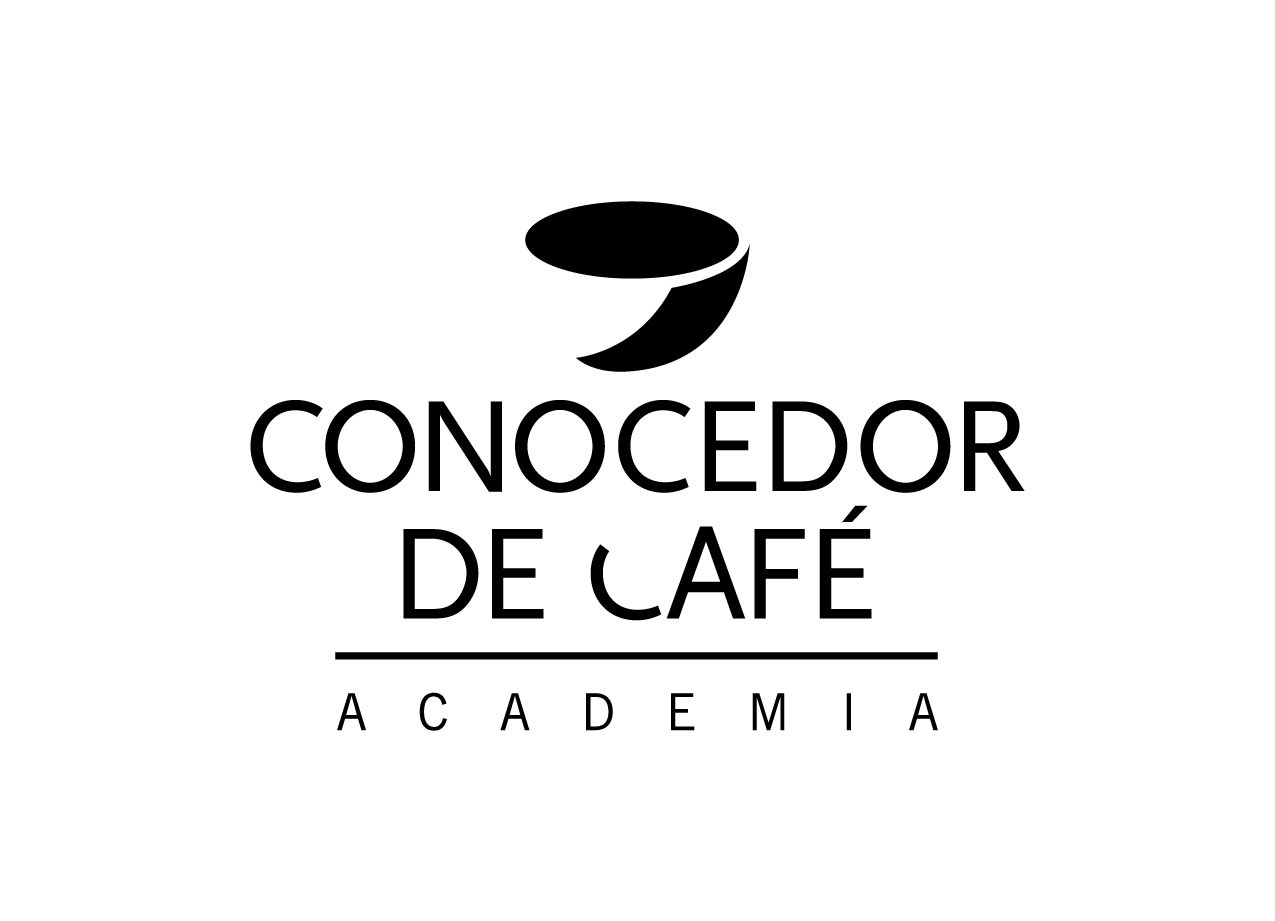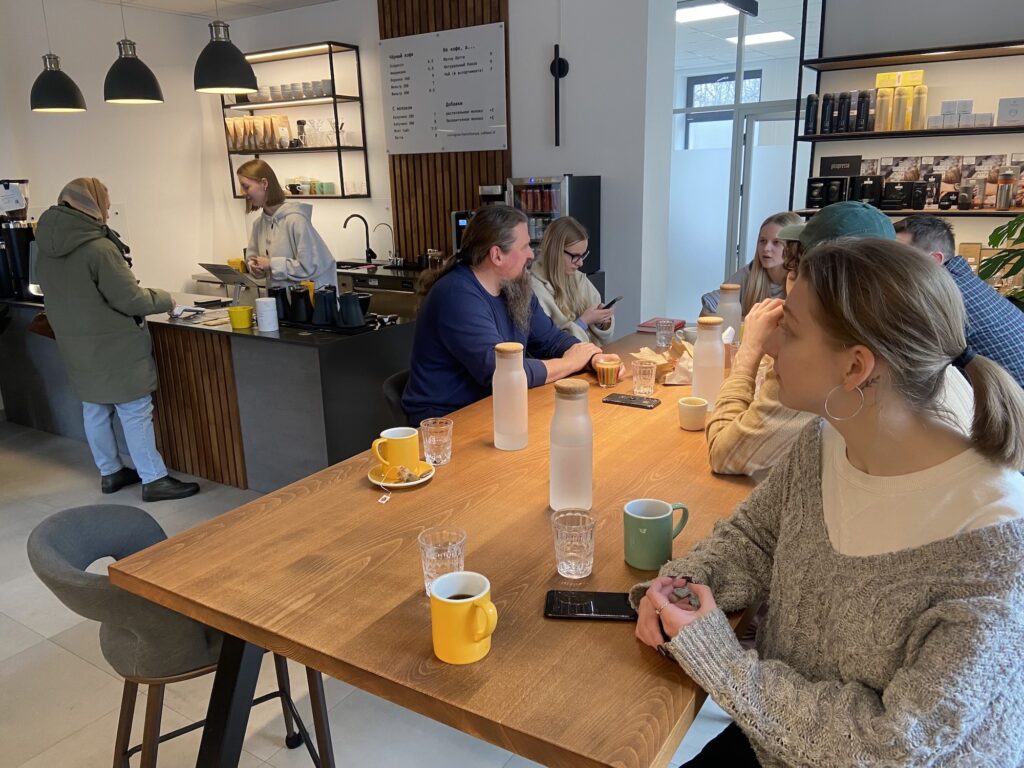
Minsk: from tea to commercial coffee brands… to specialty coffee.
Is this market ready to sort challenges out?
Coffee was a luxury beverage that only wealthy people could afford to drink not many decades ago in Slavic cities like Minsk. Due to their cultural ties to Middle East and Asia, herbal tea became part of the family rituals and a symbol of hospitality. Over time, younger generations think otherwise. Now coffee is taking its role as the most consumed beverage after water in this vibrant European capital.
It is not strange to Minsk coffee consumers to drink varietals produced in exotic origins like Ethiopia, Indonesia, Nicaragua, Honduras, Brazil, Colombia, Kenya or Tenejapa-Mexico.
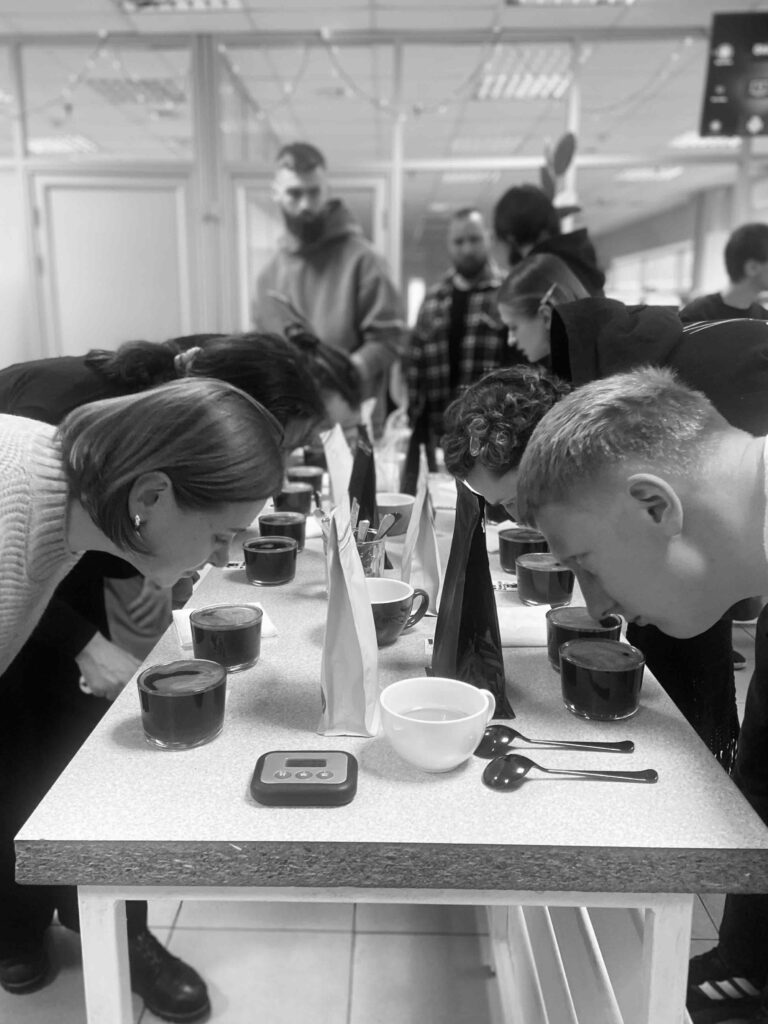
Vitaly Filmanovich, is a Q Arabica Grader and Q Processing Professional who founded Single Step Coffee Co, one of the first specialty coffee roasteries in Minsk.
“Specialty coffee is still considered a fancy stuff for geeks which is not an easy thing to break through.” He points that “the acceptance and appreciation of a new coffee consumption way, as it probably should be, comes from the younger generations.”
Many of the leading specialty coffee protagonists today in Minsk has endured not only economic disruption but unbalanced competition from big brands on the supermarket shelves. From instant soluble coffee to traditional Italian-style dark roasted coffee, specialty coffee shops are on the rise but far from an easy endeavour.
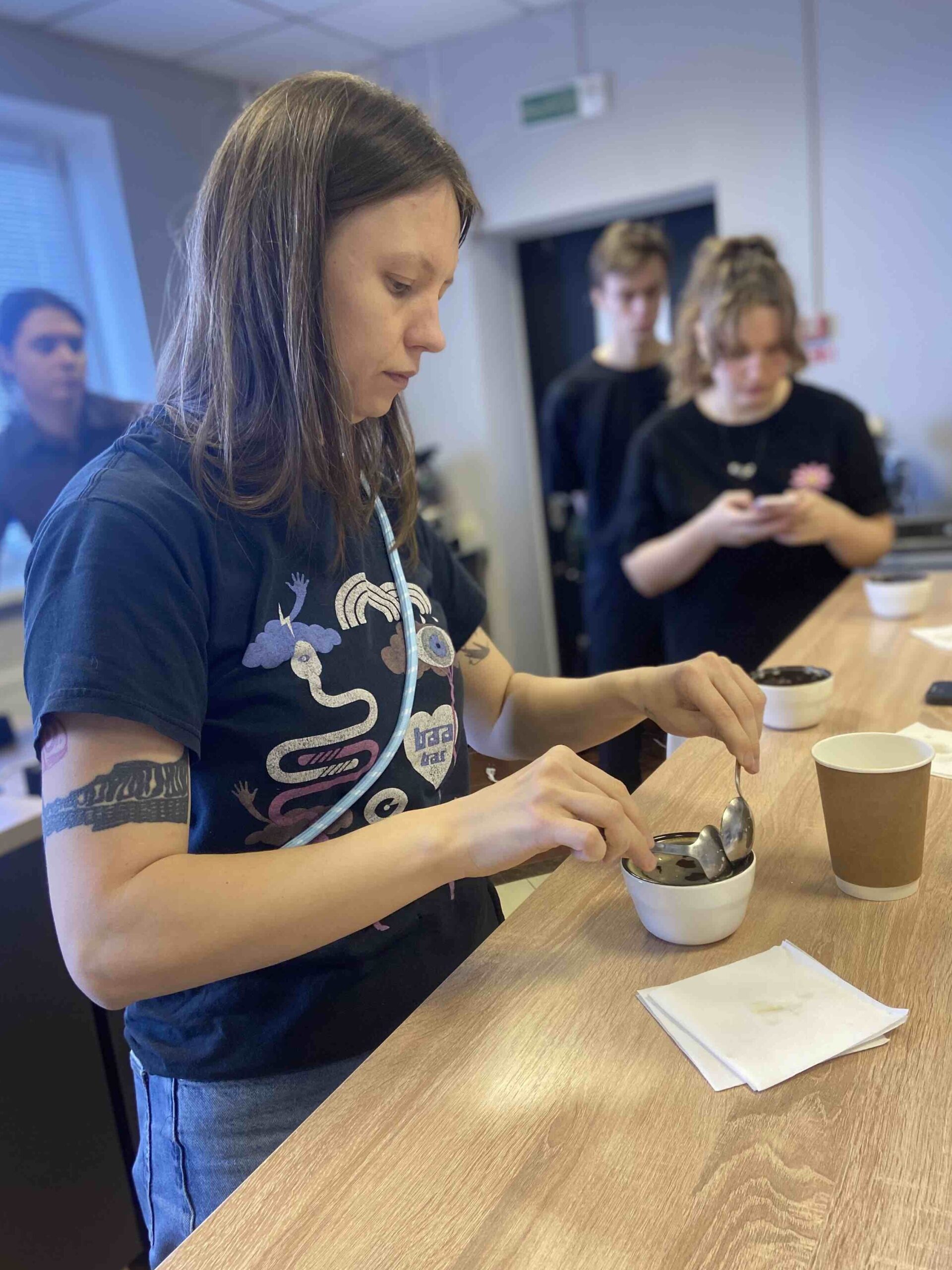
Hanna Skrypko recently became the first Q Arabica Grader female in the country. She is in charge of quality coffee production at the well known Kitchen Coffee Roasters in Minsk. She anticipates a challenge in making consumers increase their coffee quality consumption.
She echoes her thoughts, saying “Non specialty coffees demonstrated high overall quality, while purchasing power of customer didn’t get higher.”
Volha Aleshina owns “26”, one the most iconic coffee shops in the historic downtown Minsk.
“In the coming years we will see an increase of the expansion of specialty coffee no only in coffee shops, but also at home. Already, many people are carefully choosing beans for their coffee machines, and also they are observing with interest alternative coffee brewing methods.”
She acknowledges that traditional coffee drinking habits continue to hold their ground and commercial coffee will always prevails. “However, conscious consumption is becoming a growing trend, consumers are increasingly interested in the quality of the beans, brewing methods and partnerships with local roasters.”
“Supporting local roasters is also important for the development and spread of specialty coffee culture in the country. We are focused on collaborations with local roasters to select best lots available for our consumers to take away and on-site coffee brewing.” she remarks.
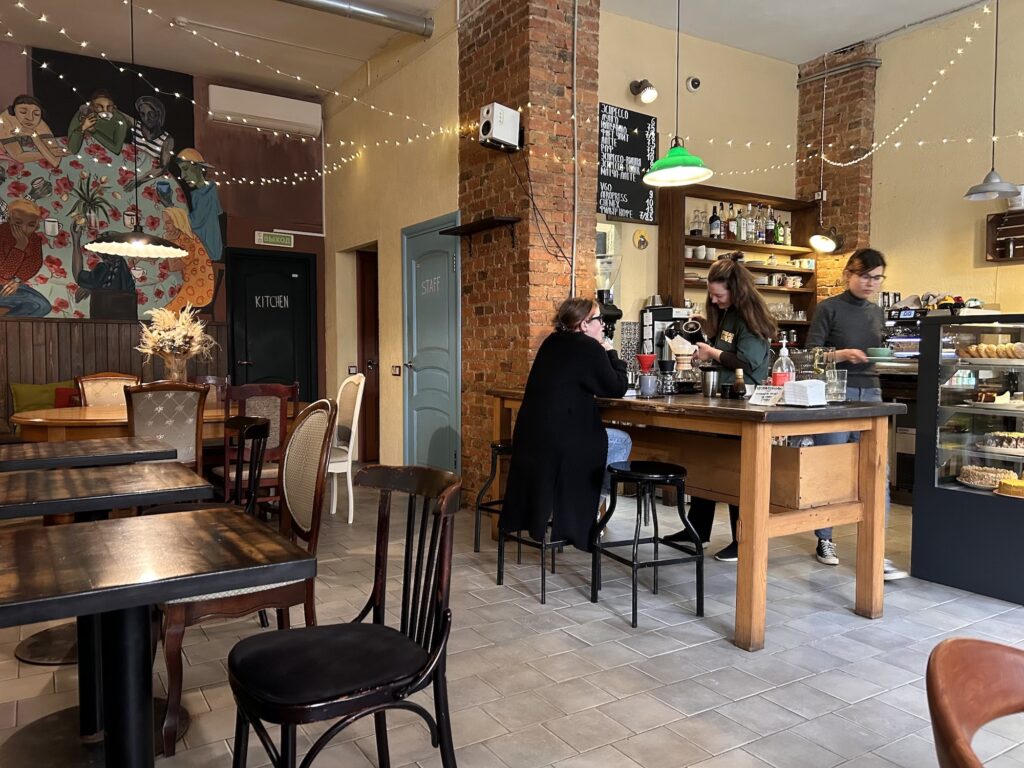
Moreover, young coffee professionals are pouring into the specialty coffee scene in Minsk. They are not only well trained baristas but also working on cupping and coffee tastings.
Volha Staliareuskaya is a coffee podcaster and also the one in charge of coffee tastings at Territoriya Coffee 2.0, one of the trendiest coffee brands, located in the heart of Minsk.
She explains how young consumers are more open to bright and unsual varietals rather than more balanced coffee preferred by traditional customers.
“If a person has already gone for coffee at a specialty store, then that person is clearly ready for more involvement than the usual customer.”
She organises tasting almost twice a week at Territorya Coffee 2.0 with quite diverse attendance.
“I believe that education is the basic for promoting specialty coffee culture. This culture carries within itself a certain idea, that is necessary to convey to people and to communicate in a simple language.” She also added that “promoting a high quality courses can not only teach how to work with coffee but also educate entrepreneurs and employees in why this topic is so important. The lack of high-quality education in our industry is stopping the process.”
In the near future, the raise of coffee prices is still a wait-and-see game. Nobody seems to anticipate how consumers will adapt to a new price reality.
Filmanovich recently embarked Single Step Coffee in a direct trade project. They also developed their own drip coffee production line.
“Instead of fighting with big commercial brands on their battle field, we build our own field with limited supply and unique product that can not be mimicked by them.”
His remarks about the future of the specialty coffee industry in Minsk are still garderly prudent.
“This business is mostly driven by passionate enthusiasts with a lot of emotions and lack of business vision and perspective and often, lack of spare money. So when it comes to the hard times, these businesses can do nothing but collapse in the face of problems. They don’t have the spine and safety margin to survive the storm like the old-fashioned traditional coffee producers and importers do.”
Hanna Skrypko thinks alike when it comes to adapt to the new green coffee prices around the world.
“It will be a shaky ride for us, just like the rest of the world,” she predicts.
Also, in her vision the coffee roasters will have to choose to push forward and invest resources to continue growing or move aside. “I am not ready to give an answer but still, we need to make our choice.”

